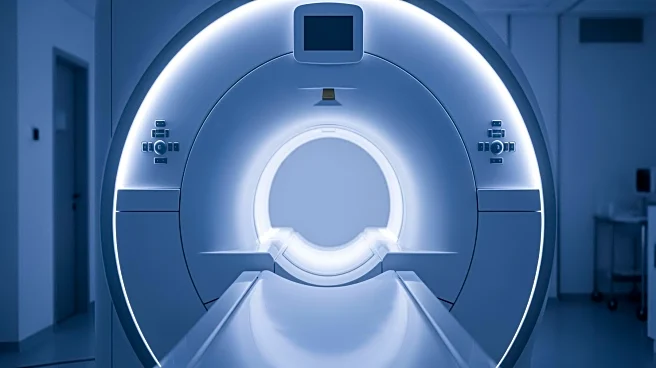What's Happening?
President Trump recently disclosed that he underwent an MRI, describing the results as 'perfect.' While he did not specify the type of MRI, he mentioned cognitive tests, suggesting a brain MRI might have
been conducted. A neurologist consulted by STAT outlined several reasons a 79-year-old might need a brain MRI, including memory complaints, which are common among individuals in this age group. The prevalence of Alzheimer's dementia and mild cognitive impairment increases with age, making brain MRIs a useful diagnostic tool. Other potential reasons for a brain MRI include strokes, which become more common with age, and conditions like Lewy body dementia and cerebrovascular disease.
Why It's Important?
The discussion around President Trump's MRI highlights the broader issue of cognitive health in older adults. With a significant portion of the elderly population experiencing cognitive decline, understanding the reasons for brain MRIs can inform public health strategies and healthcare policies. The prevalence of conditions like Alzheimer's and strokes underscores the need for early diagnosis and intervention, which can improve quality of life and reduce healthcare costs. This development also raises awareness about the importance of regular cognitive assessments for aging individuals.
What's Next?
As President Trump continues to be a public figure, his health disclosures may prompt further discussions on the cognitive health of older leaders and the implications for their decision-making abilities. The medical community may advocate for more routine cognitive testing and brain imaging for older adults to better manage and treat age-related cognitive conditions. Additionally, public interest in the health of political figures could lead to increased transparency and regular health updates.
Beyond the Headlines
The focus on President Trump's MRI could lead to broader conversations about age-related health issues and the stigma surrounding cognitive decline. It may encourage more open discussions about mental health and aging, promoting a culture of proactive health management. Furthermore, this situation could influence how society views the capabilities of older individuals in leadership roles, potentially impacting political dynamics and leadership selection processes.











